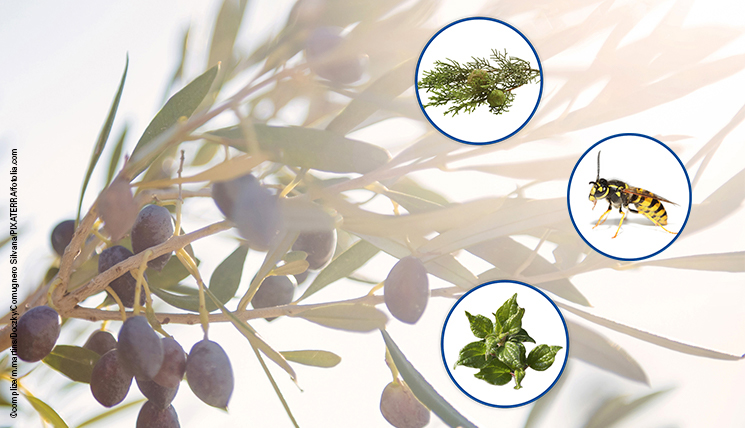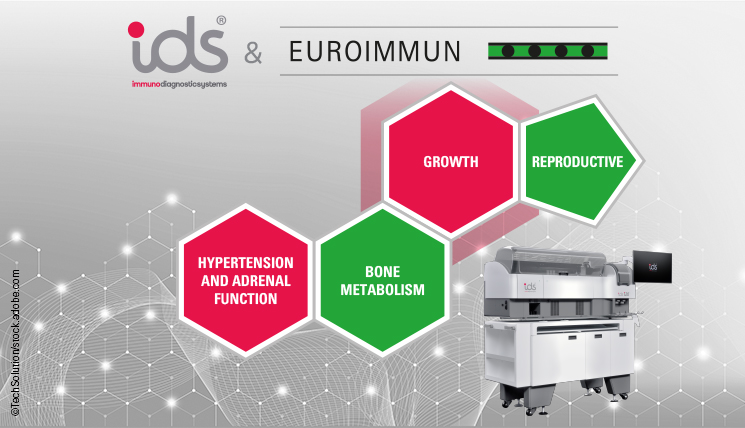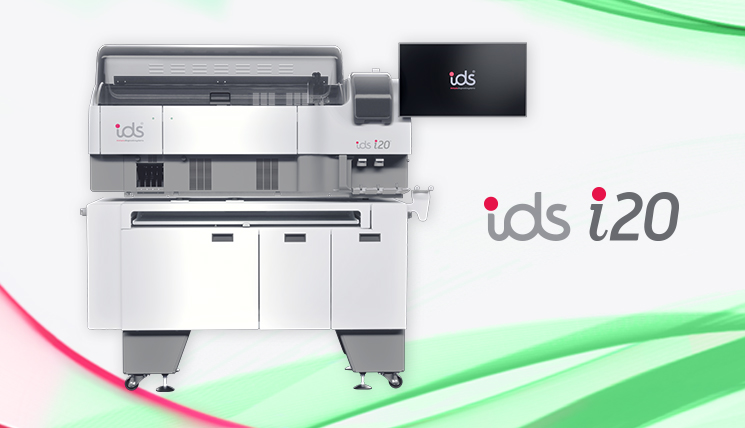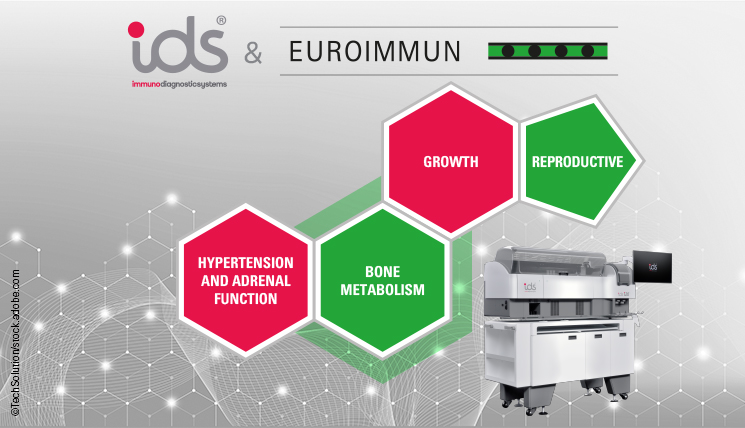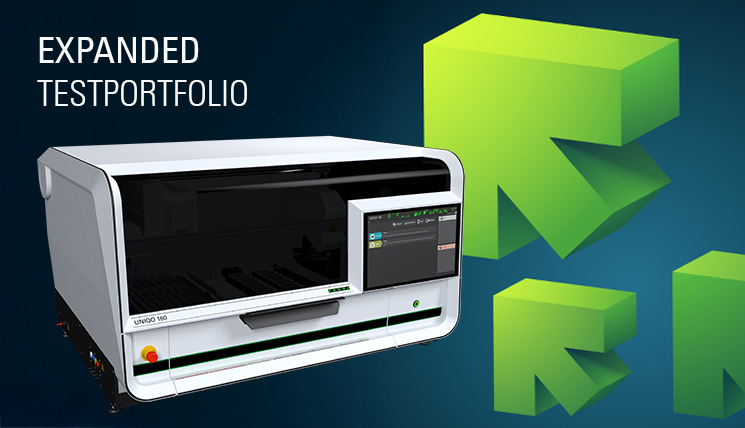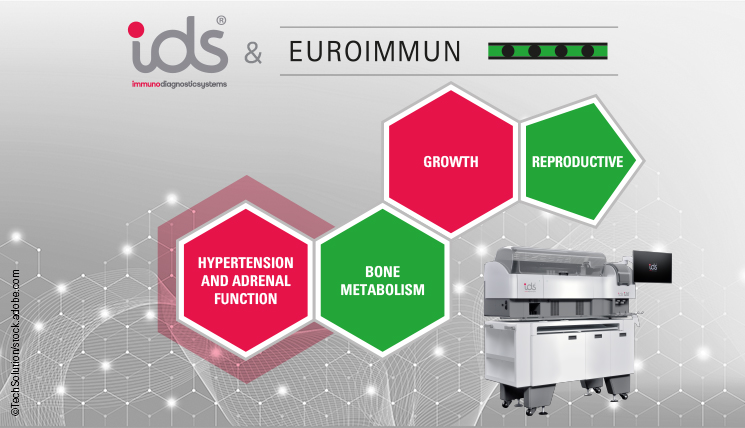Diagnosing pollen allergies in the Mediterranean is characterised by many special challenges. The pollen release times of the endemic plants are often parallel and may stretch over the whole year, which makes it difficult to determine the relevant allergens. Moreover, many people are sensitised to several pollen allergens. Together with leading allergy experts from the Mediterranean region, EUROIMMUN has developed a new multiparameter immunoblot based on defined partial allergens (DPA, allergy components).
The EUROLINE DPA-Dx Pollen Southern Europe 1
The EUROLINE DPA-Dx Pollen Southern Europe 1 helps to detect and differentiate specific antibodies of class IgE against inhalation allergens that are especially relevant in the Mediterranean region. The EUROLINE profile does not only precisely identify the allergy-causing proteins, but also enables differentiation of primary sensitisations and cross-reactions. Consequently, the test facilitates the choice of a suitable therapy for the patient.

Secure delimitation of primary sensitisations and cross-reactions
The EUROLINE DPA-Dx Pollen Southern Europe 1 is based on species-specific marker molecules and cross-reactive components and total extracts of different tree pollen (birch, olive, cypress, hazel, oak), grass pollen (timothy grass), herb pollen (wall pellitory) and the mould Alternaria alternata. The targeted combination of specific marker molecules (nCup a 1, rOle e 1, rPar j 2) and panallergens (e.g. PR-10 proteins and profilin) enables the delimitation of genuine sensitisations and cross-reactions. Furthermore, the test encompasses a band for the detection of cross-reactive carbohydrate determinants (CCD) for the differentiation of clinically relevant reactions and unspecific anti-CCD reactions. If primary sensitizations and cross-reactions are not sufficiently distinguished, the results may be misinterpreted. Consequently, the desensitization during a specific immunotherapy may result less effective.
The EUROLINE DPA-Dx Pollen Southern Europe 1 in the clinic
The immunoblot is being evaluated in independent studies. Recently, a publication of the research group of di Fraia from the Charité Berlin showed the great analytical and clinical value of the profile (di Fraia et al. Clin Exp Allergy (2018) Sep 3. Doi:10.1111/cea.13264). Especially outside Germany, there is great interest in the new EUROLINE DPA-Dx profile. A large-scale international multicenter study is currently evaluating the value of the test for the support of diagnosis in patients from large parts of Southern Europe (www.ait2020.com). You can find further information on the EUROLINE allergy profiles at https://www.euroimmun.com

